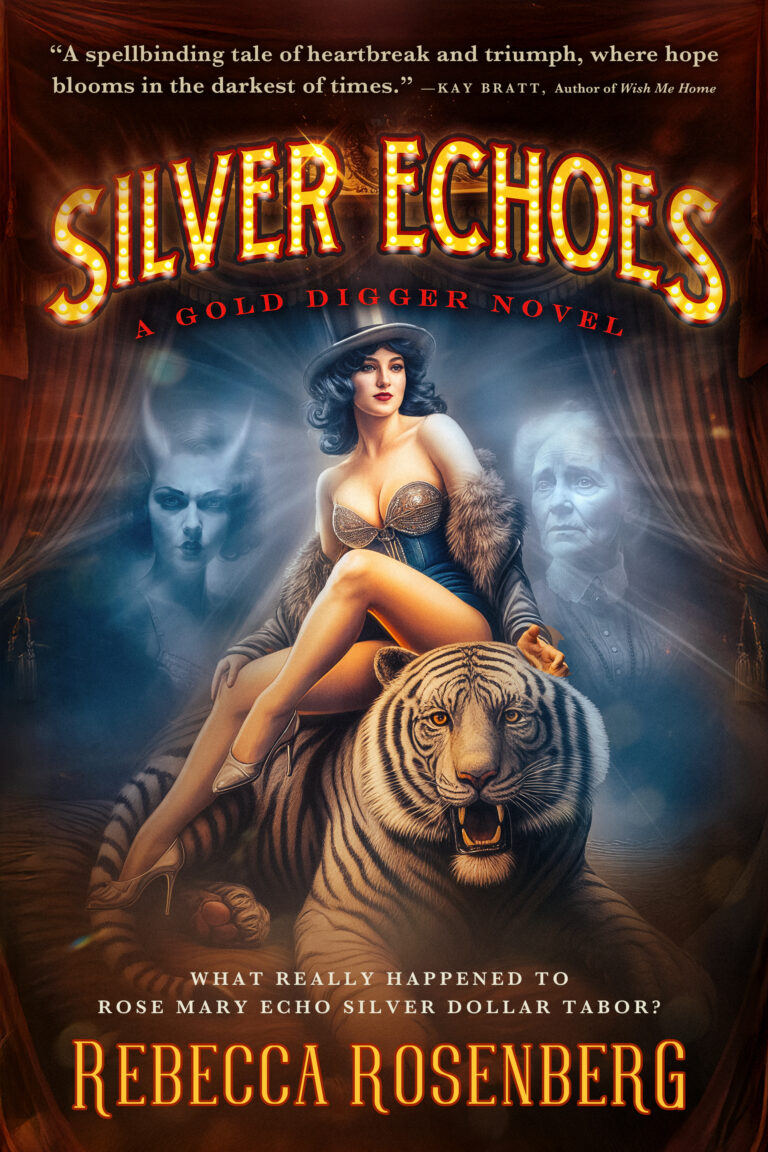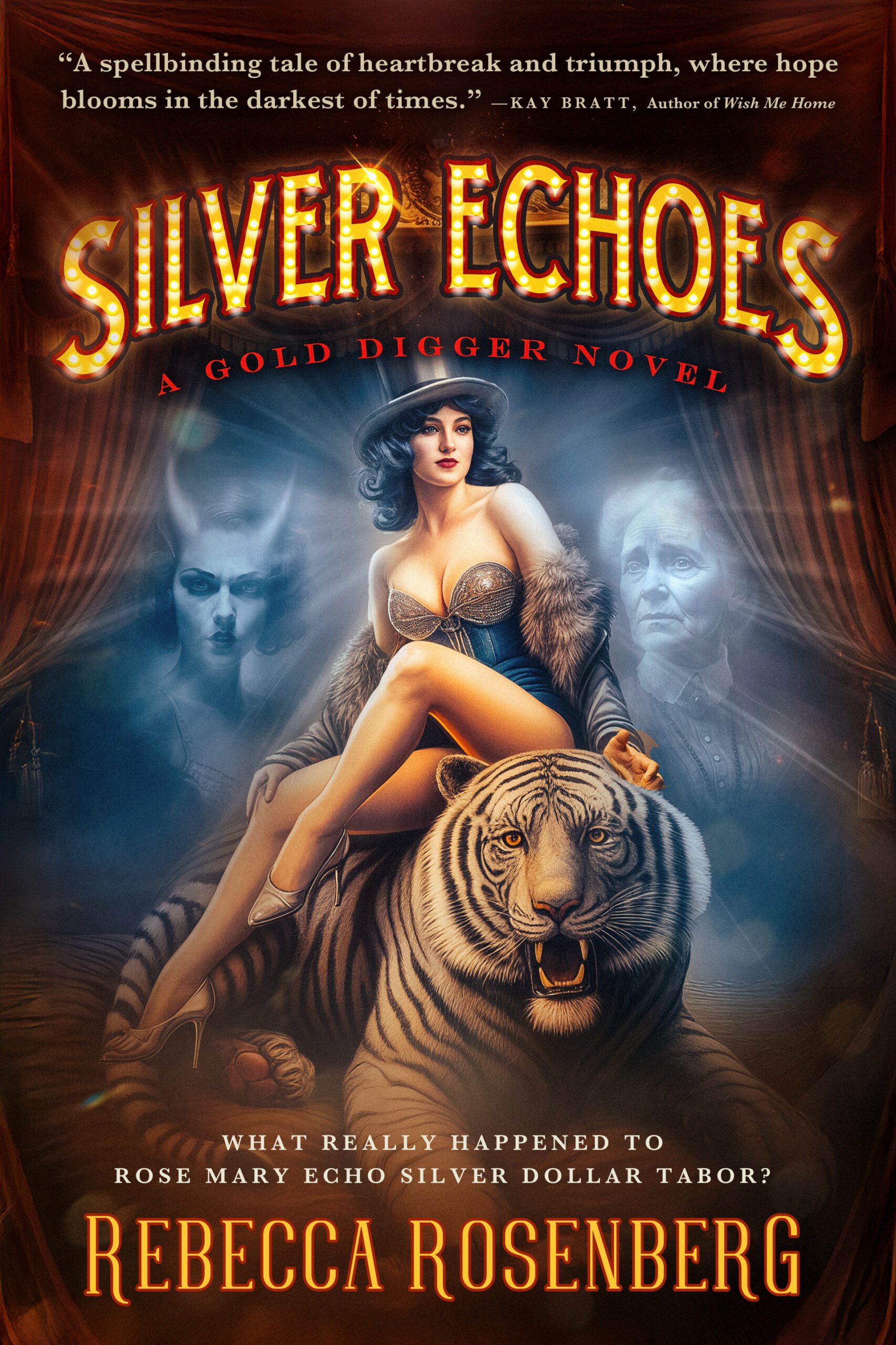Based on the true story of the Tabor family and the Matchless silver mine, Rebecca Rosenberg’s SILVER ECHOES follows prodigal daughter Rose Mary Echo “Silver Dollar” Tabor—whose suspicious and untimely death invited both salacious rumor and tragic grief. With her father Horace dead and her mother (the famed “Baby Doe” Tabor) struggling to turn a profit from the sluggish silver mine, Silver Dollar sets off to regain the family’s prestige through showbiz. Although she has her eyes on the burgeoning movie scene in Hollywood, fate sends her reeling through the bars and nightclubs of Colorado.
The history of the Tabor family is tied to mining, but Silver Dollar’s story is that of America’s postwar struggles through the ‘20s. SILVER ECHOES goes far on brilliant, incisive moments of natural beauty—the sight of the moon hanging like “a sliver of bone in the obsidian sky,” or “the sharp tang of pine mingled with the sweet, earthy scent of sage.” But it hits its stride in the smoky whiskey-and-gin joints of a Colorado not far removed from its 19th-century roots. The protagonist’s first-person chapters are particularly vivid. When she complains that “My underarms smelled like gin, my tongue tasted like Brillo pads, [and] my insides felt raw as ground beef,” the reader’s imagination—and stomach—are effectively piqued. This novel also leans into the sheer picturesque interest of its setting: an urban underworld where an American silver heiress moonlights as a dancer in Chinese nightclubs, rubbing elbows with as many Italian and Irish gangsters as Hollywood producers. For fans of this brand of noir-tinged historical fiction, SILVER ECHOES has much to offer.
However, the text also makes some decisions—partly in handling its underlying history—that do detract from the reading experience. The biggest problem is simply that a great deal happens in a very short period of time, juggling two to three active plots (including a chronologically later arc about the film based on the Tabor family). As a result, drama tends to dissipate in moments that should feel climactic. A shooting, a mauling by a tiger—they all pass by in the blink of an eye, taking up less space on the page than they need to stand out from the surrounding events and really impact the reader. Entire characters and their arcs (incidental people like a young soldier shipping out for WWI, but even the protagonists’ own family members) can come and go without leaving much of an impression.
Meanwhile, the text makes a notable choice in dramatically (and explicitly) portraying Silver Dollar with Dissociative Identity Disorder. This is a difficult but acceptable choice within historical fiction; it just isn’t clear that this idea is more successful, or more engaging, than having a protagonist who willfully refashions her identity to meet the moment.
A few other stumbling blocks will stick out to the reader (for instance, the text flubs the dates of the First World War). Overall, however, SILVER ECHOES still succeeds as a fast-paced romance of triumph and tragedy in early 20th-century America.
Though it makes a few narrative missteps along the way, Rebecca Rosenberg’s SILVER ECHOES is still a rollicking and tragic take on the historic Tabor family’s life.
~Dan Accardi for IndieReader


